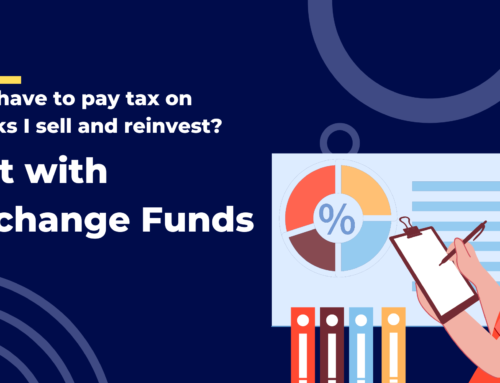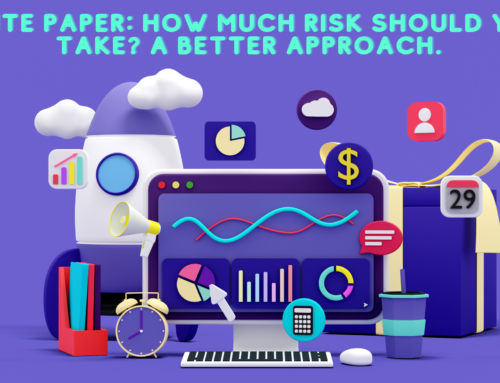Success in life as it is in finance I believe is primarily driven by mindset. World Famous business and self-help coach Tony Robbins and others say that success is 80% mindset and 20% skills. They have touted this bastardized adaptation of the 80/20 Pareto principle for years. While I’m no world-famous self-help guru or an overpaid Ph.D. McKinsey consultant, I do know that it is difficult to be successful with money if you have a negative financial mindset. Your financial mindset is the likely key to your ultimate financial success. If you are having difficulty building the wealth you want, your problem may very well be that you do not have the proper financial mindset. Adopting a better, more positive financial mindset may help you bridge the gap between the wealth you currently have and the wealth you know you deserve.
Start From the Beginning
Where does one start if they want to adopt a better financial mindset than the one they currently have? My belief is the best place to start is to understand how we as humans in our society have been conditioned. According to Stanford Psychologist Carol Dweck in her book Mindset: The New Psychology of Success in a three decade quantitative study she found that the key to success wasn’t ability, but rather if you look at ability as something that needs to be demonstrated versus something that can be developed. She found that those individuals with the belief that ability is something that can be developed were people with a growth mindset. These people with a growth mindset were not as worried about mistakes because they saw these mistakes as an opportunity to grow. As children, many of us are taught the difference between scarcity and abundance. We grow up with a “scarcity” mindset, especially when it comes to money. We are essentially programmed to think that money and financial success are rare things and that we don’t want to make mistakes with something that is rare. So the first step according to Dweck is to understand that a financial mindset can be developed. If you are open to learning how to develop a positive financial mindset, read on.
Habits Can be Hard To Break-But Break they Must
Retraining your brain is difficult. Years of habitual thinking patterns, most of which are negative by the way, are admittedly difficult to unwind. According to the National Science Foundation, an average person has about 12,000 to 60,000 thoughts per day. Of those, 80% are negative. Try to be more positive and find more win-win scenarios. After all, it takes effort to think negatively and those negative thought patterns are deeply imbued as habits. Charles Duhigg in his book The Power of Habit says the base of any habit is called the habit loop and that loop consists of Cue, Routine, Reward. This loop is the key to analyzing your financial mindset. For example, while working long hours you see an online ad for a pair of shoes, you click on it, browse the shoe website for an hour and buy two new pairs of shoes (which you didn’t really need) then get back to work. The real reward was not a new pair of shoes but a distraction (break) from work. So, the cue was the ad, the routine was shopping online for an hour and the reward was the break from work. Problem is you spent money on something you did not need. While conventional wisdom states that it takes 21 days to form or break a habit Duhigg claims its closer to 66 days. Do you need to change your financial mindset habits? If you are reading this, you probably do.
Start Small and Ask Yourself Some Important Questions
So now that you know you need to adopt a positive financial mindset, that you know it can be developed but that it will be difficult because you will need to identify your bad financial habits and break the habit loop that has created them, what is the next step? It is my belief that people should start with small mindset shifts. The first is to try and think more positively about everything, don’t ignore the news, but don’t take it personally. Ask yourself questions about your financial mindset and answer in a different light. Here are a few questions you can use to shift the way you think about your finances to help you develop a more positive financial mindset.
- If I did not have to work, what would I do with my time? Why is that important to me?
- Do I think that money is a scarce commodity, or can I always just make a lot more and not worry about it?
- What would I need to change in my life in order to build the kind of wealth I know I deserve?
- Are my beliefs about money and finances limiting or limitless? Why?
- What do I identify most with, saver, investor, spender, entrepreneur, worker? Do I want to Identify with a different one and why?
What’s Your Why?
Finally, develop your why. Simon Sinek in his book Start with Why, in a nutshell, states that if you know and internalize WHY you are doing something positive for yourself, it will inspire you to continue on that positive path when times are difficult to continue. There are a lot of good reasons why we should develop a positive financial mindset for ourselves. We grow up thinking about money as a rare commodity and that mindset can affect our personal relationships as well. According to the Institute for Divorce Financial Analysts, nearly 22% of divorces are due to money issues so getting a better financial mindset can also help in your interpersonal relationships with your partner or spouse. According to a study by Charles Schwab the average American is struggling to make ends meet each month, with 59% of U.S. adults saying they live paycheck to paycheck. Furthermore, nearly half of survey participants say they carry credit card debt and struggle to keep up with the payments. Having a positive financial mindset will likely make sure you do not fall into this trap and allow you to provide greater stability and security for your family. There are many good reasons why you should develop a positive financial mindset. What are yours?
Here are some very basic things you can do today to help you develop a more positive financial mindset for the future.
- Be happy with what you have – this may help you not buy things you don’t need i.e. retail therapy.
- Think more positive thoughts daily. It takes work to be negative so why do it?
- Hang up! No not the phone but surround yourself (hang out) with positive people who you aspire to be like. You may find that some of your current peers are not as ambitious as you are and may be holding you back.
- Try and think more in terms of abundance rather than scarcity. Think in terms of what is possible not what is impossible.
- Be open to greater possibility and do not let your small job or business limit your growth and potential.
Changing your financial mindset is a journey and will obviously be a difficult one but a very worthwhile venture. In my next post, we will continue this financial mindset discussion with an in-depth analysis of Scarcity vs. Abundance in your mindset and develop a framework for financial success that you can follow to help you reach your dreams. Until then, here’s to your new positive financial mindset!






